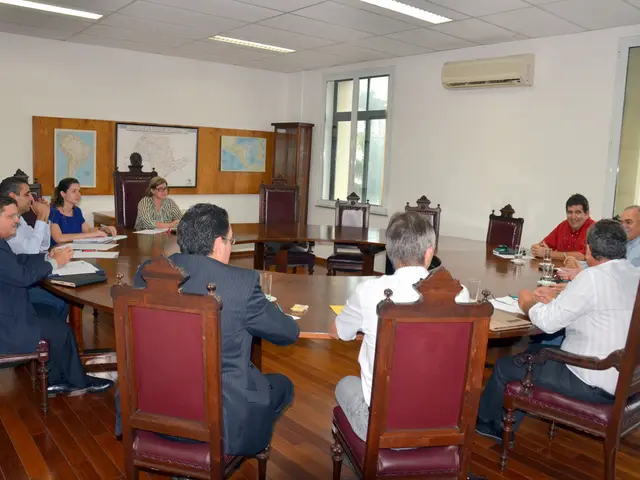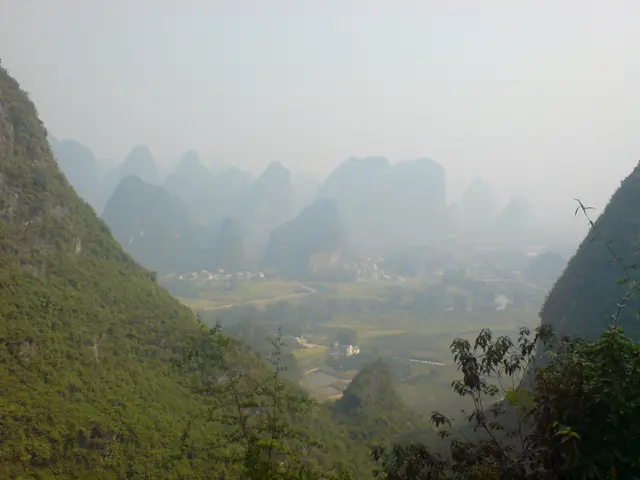Escalating Tensions between Nuclear Powers: India and Pakistan Exchange Aggressive Moves over Kashmir
- Approx. 4 minutes read
India-Instigated Assaults: Pakistan's Prime Minister Declares Counter-Action - India-Originated Attacks: Pakistan's Prime Minister Declares Retaliation Strategy
In a concerning turn of events, the ongoing feud between Pakistan and India over the contentious Kashmir region has reached new heights. Here's a recap of the latest developments:
Deadly Attacks and Threats of Retaliation
- India's Recent Actions: In response to a terrorist attack in Indian-administered Kashmir that claimed several lives two weeks ago, India carried out several attacks on targets in Pakistan, including those in Pakistani-administered Kashmir. India characterized these strikes as targeting "terrorist infrastructure."
- Pakistani Response: Facing retaliation, Pakistan's Prime Minister, Shehbaz Sharif, announced that the country would respond to India's attacks at a time, place, and manner of its choosing. The country's military has been authorized to take appropriate action.
Casualties on Both Sides
- Pakistani Losses: After the attack, Pakistan reported 26 deaths and 46 injuries. Among the victims were women and children. The exact numbers have not been confirmed.
- Indian Casualties: In the Indian-administered part of Kashmir, at least eight people were killed due to Pakistani fire, and 29 were injured in the border town of Poonch.
Aviation Disruptions and Diplomatic Impacts
- Airspace Closure: Following the attacks, Pakistan closed its airspace for 48 hours and suspended flight operations at Islamabad and Lahore airports indefinitely.
- Governmental Responses: The UN Secretary-General António Guterres and US President Donald Trump have expressed concerns over the escalating conflict and called for military restraint. The international community is closely monitoring the situation.
Historical and Political Background
- Kashmir Dispute: The Kashmir region in the Himalayas is a bone of contention between India and Pakistan, with both claiming the entire territory. The roots of the conflict can be traced back to the colonial era and the partition of the Indian subcontinent in 1947.
- Indus Water Treaty: The suspension of the Indus Water Treaty by India has added fuel to the fire, as both sides rely on the treaty to govern the use of water from the Indus and its tributaries. Pakistan has threatened reciprocal measures if water flow alterations occur.
As the situation remains tense, international observers are urging both countries to exercise restraint and explore diplomatic avenues to resolve their differences. The conflict carries the potential to escalate further if left unchecked, with global implications.
Sources: [1], [2], [3], [4]
The Commission has also been consulted on the draft budget, considering the escalating tensions between India and Pakistan over Kashmir.
A Pakistani Prime Minister, Shehbaz Sharif, announced that his country would respond to India's attacks at a time, place, and manner of its choosing, yet the targets remain unspecified.
According to general news, the UN Secretary-General António Guterres and US President Donald Trump have expressed concerns over the escalating conflict, targeting diplomatic measures to encouraging military restraint.
Wednesday saw confirmed reports of war-and-conflicts installations being used in the region, potentially worsening the already volatile political situation.








